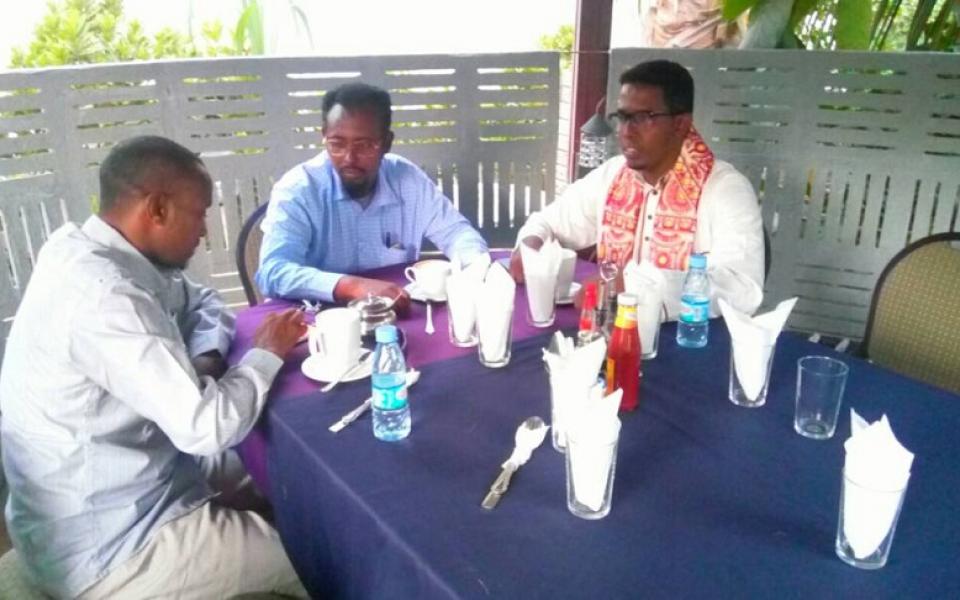
Mogadishu: Somali Media for Environment, Science, Health and Agriculture (SOMESHA) made a tremendous peer-to-peer humanitarian exchange of ideas with her leaders of the Ministry of Water and Natural Resources; in particular, the interim director of planning Mr. Abdisatar Ali Hersi Amalow and his minister, Hon. Ahmed Muse. Hirshabelle Regional State is struggling to obtain water after the water-shortage impairment, and the river is destitute of water.
The Secretary General of the Somali Media for Environment, Science, Health and Agriculture (SOMESHA), H. E. Mr. Daud Abdi Daud, met today both leaders at hotel Afrik in Mogadishu from 4:30PM to 5:30PM.
“Due to the recurring drought that affected the lives of millions of Somalis and their livestock’s in their position, Hirshabelle State is experiencing a huge water shortage for both human and animal consumption and irrigation means. The most affected areas of the state include Buloburte, Beledweyne and Jalalaqsi districts of Hiiraan region,” said Minister Ahmed Muse.
“Recent assessment done by non-governmental organizations including SOMESHA and administrations of the three districts indicate an alarming situation. Malnutrition and waterborne diseases are already in reality in those areas. A call for water supply is at highest level. Thus, it is our obligation to make a humanitarian appeal for the people suffering in those regions,” minister Ahmed Muse added.
The Secretary-General of the Somali Media for Environment, Science, Health and Agriculture (SOMESHA) is appealing to the international community and all other well-wishers for immediate water supply, food and medical supply.
“We are also requesting a technical team to make further accurate assessment and recommendations for better intervention. About 43,000 who are acutely malnourished children in the three districts need urgent treatment and nutrition support, including 12,000 who are severely malnourished," said SOMESHA Secretary General Mr. Daud Abdi Daud.
“Hirshabelle consists of Hiran and Middle Shabelle regions, and is one of the suitable and notorious regions for farming and agriculture production supply to other regions of Somalia. “The impact of the drought will affect the lives of millions other people living urban cities of the other regions as there will no more supply but local people are already mobilized by the local leaders, however the effort of the local people are insufficient to cover even 10% of the need as the the regional state leaders told me,” Mr. Daud added.
Somali Media for Environment, Science, Health and Agriculture (SOMESHA) needs to address the root causes behind of the renewal lack of adequate humanitarian responses in across Somalia, giving people the knowledge and means to be strong to avert further climate shocks by means of cutting off the cycle of drought renewal via water conservation plans by approaching poverty dissimilation.
